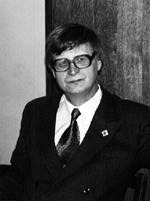
![]() The laboratory is engaged in fabricating high-efficiency catalysts and working out model descriptions of kinetics and mechanisms of the processes which take place in chemical power sources. The electrochemical techniques of catalysts preparation aimed to obtaining microloadings of platinum metals are developed, and the approaches to the regulating of the quantity and dispersion of deposited metal (by means of varying the support type, deposition potential, electrolyte composition, etc) are found.
The laboratory is engaged in fabricating high-efficiency catalysts and working out model descriptions of kinetics and mechanisms of the processes which take place in chemical power sources. The electrochemical techniques of catalysts preparation aimed to obtaining microloadings of platinum metals are developed, and the approaches to the regulating of the quantity and dispersion of deposited metal (by means of varying the support type, deposition potential, electrolyte composition, etc) are found.
![]() Systematic investigation of the Pt and Pd nanoparticles incorporated in ion and electron conducting polymers is completed recently. The basic problems under study are size effects and metal/matrix interactions in these composits.
Systematic investigation of the Pt and Pd nanoparticles incorporated in ion and electron conducting polymers is completed recently. The basic problems under study are size effects and metal/matrix interactions in these composits.
![]() Modelling of current transients, as well as the open circuit potential transients is in progress for the systems with strong adsorption of neutral species and adatoms. The basis for this modeling is formed by Frumkin-Petrii concept of the total electrode charge.
Modelling of current transients, as well as the open circuit potential transients is in progress for the systems with strong adsorption of neutral species and adatoms. The basis for this modeling is formed by Frumkin-Petrii concept of the total electrode charge.
![]() The kinetics of electrooxidation of some simplest organic fuels is investigated, which is of interest for fuel cells. Special attention is paid to carbon monoxide adsorption and electrooxidation which is very important both for applications and certain fundamental topics. Another key problem is the interaction of various adsorbed HCO-containing compounds with oxygen adatoms on platinum metals. An important finding is related to electroreduction of carbon monoxide on dispersed platinum metals under extremely mild conditions (CO atmospheric pressure, room temperature, the absence of parallel hydrogen evolution). Further studies of this process can result in electrosynthesis of CO from methanol and relative substances.
The kinetics of electrooxidation of some simplest organic fuels is investigated, which is of interest for fuel cells. Special attention is paid to carbon monoxide adsorption and electrooxidation which is very important both for applications and certain fundamental topics. Another key problem is the interaction of various adsorbed HCO-containing compounds with oxygen adatoms on platinum metals. An important finding is related to electroreduction of carbon monoxide on dispersed platinum metals under extremely mild conditions (CO atmospheric pressure, room temperature, the absence of parallel hydrogen evolution). Further studies of this process can result in electrosynthesis of CO from methanol and relative substances.
![]() Large cycle of investigations on the theme: "Galvanic displacement as a method of modifying electrocatalysts (catalysts) of submono-, mono- and polylayer coatings of platinum group metals" was carried out in the last decade.
Large cycle of investigations on the theme: "Galvanic displacement as a method of modifying electrocatalysts (catalysts) of submono-, mono- and polylayer coatings of platinum group metals" was carried out in the last decade.
| podlov@elch.chem.msu.ru | +7-(495)-939-4027 |